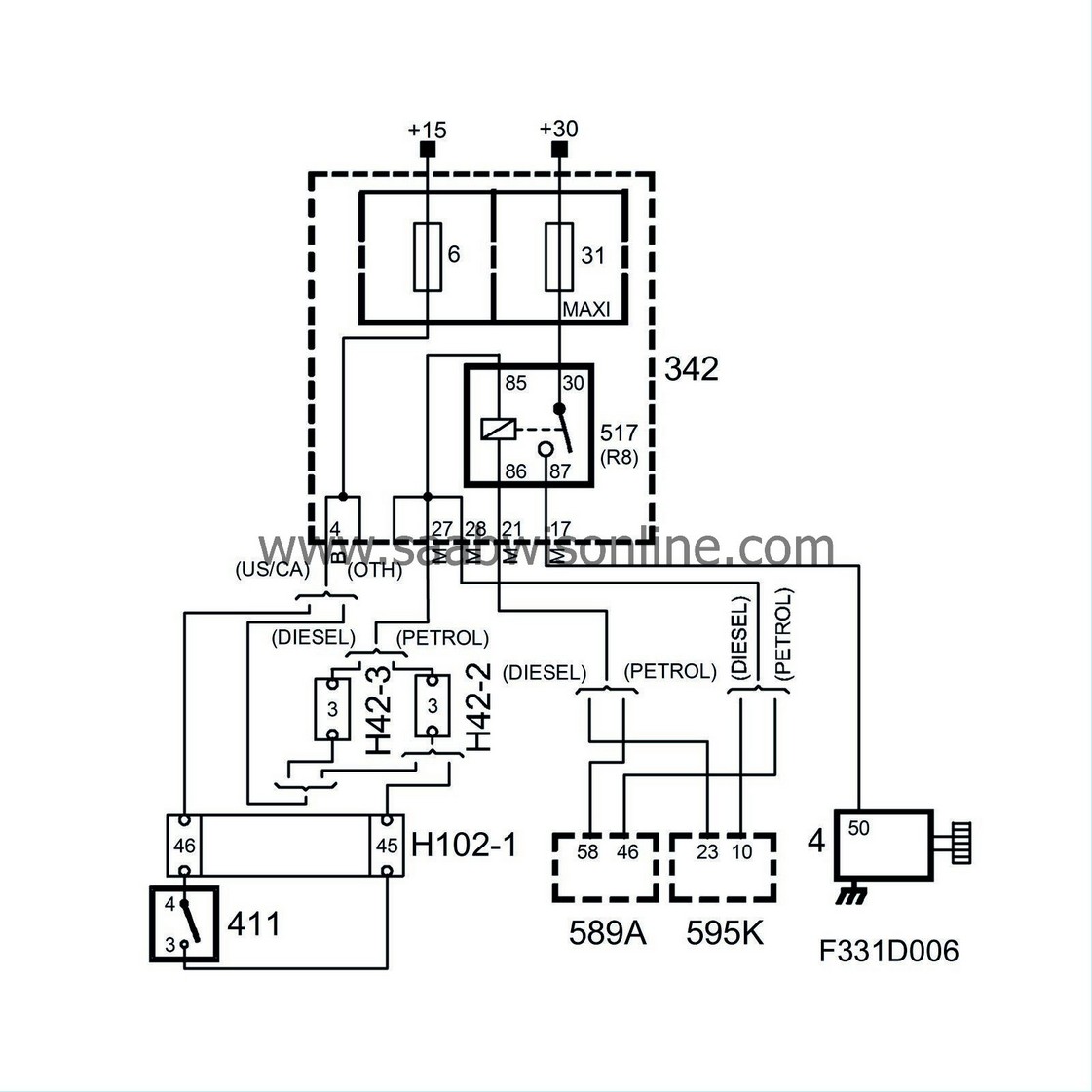Starter motor, detailed description
|
|
Starter motor, detailed description
|
The starter motor has permanent magnets to reduce the stress on the battery. The starter motor has a planet gear to increase the starting torque.
The starter motor circuit consists of two sub-circuits:
|
•
|
the working circuit, and;
|
The working circuit runs from the battery's positive terminal to terminal 30 on the starter motor.

When the ignition key is turned to start position, the starter relay will be activated provided the immobilization criteria are fulfilled and the control current circuit to the solenoid, connection 50, will be made. The solenoid engages the pinion with the gear ring on the engine flywheel and closes a switch so that the starter motor commutator is supplied with voltage via slip brushes from connection 30.

Once the engine has started and the engine speed has exceeded the starter motor rpm, the pinion is disengaged from its shaft via a free wheel, preventing the starter motor from overrevving. Releasing the ignition key breaks the starting circuit and the operating circuit to the solenoid, whereby a spring returns the pinion to its rest position.

 Warning
Warning
|
|
Nothing may be connected to the circuit between the generator and the battery. Spikes of up to 100V can occur.
|
|
|
|
|
|
|
Operating circuit for manual gearbox
|
The control circuit goes from the battery positive terminal partly to the ignition switch, partly via the start relay to the starter motor connection 50, which is the control current connection on the solenoid.

The clutch pedal must be depressed on cars for the US/CA market if the starter relay contacts are to receive current.
The starter relay control coil is grounded via the engine control module when it receives the approved transponder signal from the CIM.
 Warning
Warning
|
|
Nothing may be connected to the circuit between the generator and the battery. Spikes of up to 100V can occur.
|
|
|
|
|
|
|
Operating circuit for automatic transmission
|
The control circuit goes from the battery positive terminal partly to the ignition switch, partly via the start relay to the starter motor connection 50, which is the control current connection on the solenoid. The selector lever must be in P or N for the starter relay coil to receive a voltage. The starter relay control coil is grounded via the engine control module when it receives the approved transponder signal from the CIM.

 Warning
Warning
|
|
Nothing may be connected to the circuit between the generator and the battery. Spikes of up to 100V can occur.
|
|
|
|
|
|






 Warning
Warning

